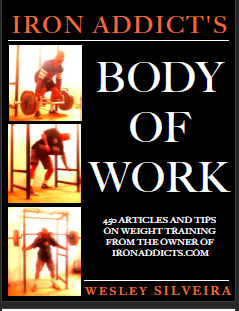Please understand from the outset that I believe most labels and definitions miss their mark in a large number of cases. But to be at least somewhat precise in any field they must still be used.
I am going to attempt to better define who and what a beginning trainee consists of so that you may better plug yourself into the correct training modality. The main problems I see in the lifting world other than poor diets are:
Beginners doing intermediate lifters programs.
Intermediates doing advanced style routines.
Advanced lifters doing elite level routines.
No one, no one wants to believe they are further down the rung of the ladder than they really are, so they convince themselves they are something they are not. Who wants to be a beginner, or even an intermediate lifter? The routines are simple and boring and everyone wants flash and sizzle, even if it means poor results.
A beginner is someone that has been either lifting a year or less, or someone that has potentially been lifting many years and has failed to achieve results. I have had many people contact me as potential training clients that had been lifting for 5-10 years, yet still can't bench 200, or squat 300 pounds. While everyone has strengths and weaknesses (as an example, I know lifters that squat and deadlift in the mid-500's and still cannot bench 300), you can safely assume that if you bench under 200 and squat/deadlift under 300 you are a beginner. Now, many of you (beginners) are probably wondering why I am using the squat, bench and deadlift as barometers. Simply put, they are the lifts most often used in both the bodybuilding and powerlifting community as "standards" of overall body strength.
A guy that goes to the gym and benches 230 and squats 345 the first time he tries is still a beginner despite having lifts well above the following criteria -- you still start from the beginning regardless of how high the starting point is. How come? No matter how high the initial point is the body will make both neural and metabolic adaptations at a very fast rate (assuming the training and diet are correct, and that unfortunately rarely occurs for beginners). But the good news is unless the training load is way too high (like the new guy getting his routine straight out of Flex magazine), or the diet horribly too low. The trainee will usually make very significant gains in both size and strength at a rapid pace. If done correctly, first year gains of 20 to 50 pounds are quite common (although 50 pounds only occurs in a relatively smaller number of lifters than the 20 to 40 pound gains that are achieved by most THAT DO THINGS CORRECTLY.
And that statement is where the problem arises and most people spend their first year making some very quick initial gains, and then watching progress dry up. Most beginners get their info out of bodybuilding magazines or off message forums, and while some of the info may be suitable, it is usually not the type of routine Joe Average Newbie lifter picks, he picks things WAY beyond his capacity.
All he needs is simple progression on the BIG compound lifts, not some 5 day a week split guaranteed to hit all muscles from all angles. A simple chest/shoulders/triceps day, a back/biceps/abs day, and a leg day is all the split a beginner needs . . . and an upper/lower split, or full body routine are also great ways to go and all the beginner needs.
If the trainee is doing a SIMPLE routine and strength gains are not forthcoming, diet/rest/stress are the issues. Assuming stress is manageable, the trainee is getting AT LEAST seven hours of solid, uninterrupted sleep (more is USUALLY better) simply assuring protein is at least 1.5 grams per pound of bodyweight (beginners often do fine on 1.25) and the diet is over maintenance, and you have a growing lifter every time unless there are metabolic issues present (as in the extreme hardgainer), and that is simply not all that common.
Don't waste your potential time for the best and fastest gains of your lifting career doing something unsuitable for you. It would be nice to be considered an intermediate lifter after only a year or so, not the many years so many lifters take to get there by doing "flashy" routines and skimping on food.
Enjoy Your Lifting!

No comments:
Post a Comment